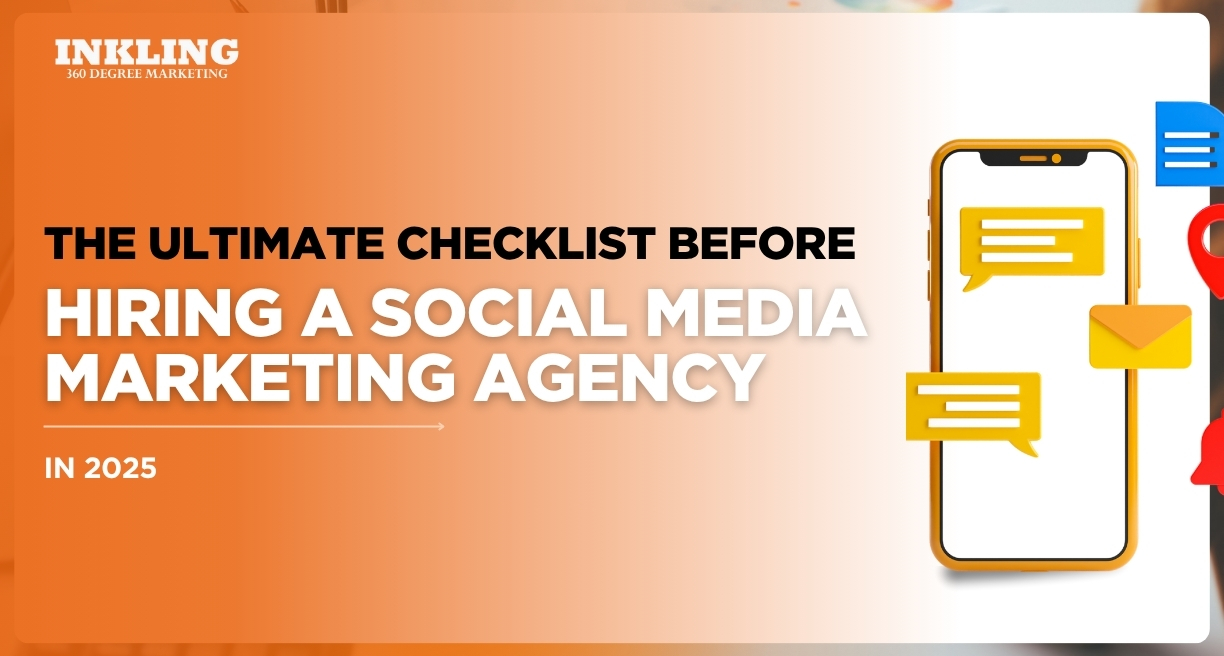
Social media in 2025 isn’t what it used to be a few years ago. It’s no longer just a place to post selfies and memes—it’s a powerful marketplace, a storytelling platform, and the heartbeat of consumer-brand relationships. With emerging platforms, evolving algorithms, and AI-generated content flooding timelines, having a smart and proactive social media strategy is no longer optional—it’s survival.
But here’s the truth: managing social media in-house can be a time-consuming, creativity-draining task—especially when you’re trying to run a business. That’s where agencies come in. But wait—before you shake hands or sign on the dotted line, you need to do your homework.
Let’s walk you through the ultimate checklist to ensure you choose the right social media marketing partner.
Define Your Goals Clearly
Before reaching out to any agency, you need to know what you’re aiming for. Are you looking to boost brand awareness, drive sales, increase engagement, or launch a new product?
If you can’t explain your goals in one sentence, take a step back. Without clarity, even the best agency will struggle to deliver results. Be specific. “More followers” isn’t a goal. “Increase engagement rate by 30% in 6 months” is.
Understand Your Budget
Social media marketing isn’t free, and cheap rarely means good. Knowing your budget helps narrow your options and ensures you’re not wasting anyone’s time—yours or the agency’s.
Small businesses might spend anywhere from ₹30,000 to ₹1,00,000/month depending on the scope. Big brands? Think lakhs. Understand what’s included in the price—content creation, ad spend, influencer fees?
Research the Agency’s Expertise
Every agency will claim they can do it all. Few actually can.
Look for agencies that understand your industry. If you’re in tech, you don’t want someone who only has experience with fashion brands. Also, check their platform expertise. Some are great with TikTok but clueless about LinkedIn.
Ask for Case Studies and Success Stories
Any decent agency should have stories to share—real campaigns, real metrics, and real results. Don’t fall for vague answers like “We helped a brand grow massively.”
Ask for numbers. Ask how they got those numbers. Ask what went wrong and what they learned.
Look at Their Own Social Media Presence
Would you trust a fitness coach who’s out of shape? Same logic applies here.
Check the agency’s own social profiles. Are they creative, updated, engaging? If they can’t handle their own branding, how can they handle yours?
Evaluate Their Strategy Process
Cookie-cutter strategies are a red flag. A good agency will audit your current presence, research your audience, analyze competitors, and then build a custom strategy.
Ask them:
- How do you define success?
- What KPIs will you track?
- How do you adjust when something isn’t working?
Communication and Reporting
Transparency is everything.
You need regular updates—weekly, bi-weekly, or monthly—and those reports should include meaningful data: engagement rates, reach, conversions, follower growth, and campaign highlights.
Also, ensure there’s a dedicated point of contact. Nothing kills progress like bad communication.
Tools and Technology They Use
A modern agency should be using a solid tech stack—scheduling tools like Buffer or Hootsuite, analytics platforms like Sprout or GA4, and AI tools for optimization and insights.
Ask:
- What tools do you use?
- How do you stay ahead of trends in 2025?
Content Creation Capabilities
Do they create content in-house? Do they have a team of designers, writers, video editors? Or do they outsource everything?
Review their previous creatives. Are the graphics crisp? Videos engaging? Copy punchy and on-brand?
Remember: your brand’s image is in their hands.
Paid Ads Management
Paid social is where the money is made. You want an agency that knows how to target, split-test, and optimize across all platforms—Facebook, Instagram, LinkedIn, even emerging players like Threads or X.
Make sure they understand conversion tracking, pixel setup, custom audiences, and ROI measurement.
Influencer Marketing Integration
Influencer campaigns can make or break your visibility.
Ask the agency:
- Do you offer influencer marketing?
- Do you vet influencers for authenticity and reach?
- How do you track performance?
In 2025, micro and nano influencers are often more effective than celebs.
Reviews, Testimonials, and Referrals
Check what other clients are saying. Go beyond the testimonials on their website. Look for independent reviews, Google ratings, or even LinkedIn endorsements.
Better yet—ask for references and talk directly with past clients.
Contracts and Flexibility
Some agencies will try to lock you into 12-month contracts. Don’t sign without clarity.
Ask:
- Can we start with a 3-month trial?
- What’s your exit clause?
- What happens if results aren’t met?
Flexibility shows confidence in their own performance.
Compatibility With Your Brand
This isn’t just business—it’s a creative partnership.
You want an agency that understands your tone, matches your vibe, and feels like an extension of your team. Sit down, talk casually, share ideas. If the energy feels off, trust your gut.
Conclusion
Hiring a social media marketing agency in 2025 can be a game-changer—but only if you choose wisely. Don’t rush the decision. Do your research, ask the right questions, and trust the agency that shows understanding, creativity, transparency, and genuine interest in your brand.
With this checklist in hand, you’ll be miles ahead of others still chasing followers without a strategy.
FAQs
1. How long does it take to see results from a social media agency?
Typically, it takes 3 to 6 months to see consistent results, depending on your goals and platform.
2. What questions should I ask before hiring an agency?
Ask about their past work, tools they use, strategy process, contract terms, and how they measure success.
3. Should I hire a freelancer or a full agency?
Freelancers are great for small, low-budget projects. Agencies offer a full team and strategic insight—better for long-term growth.
4. Can an agency manage all my platforms?
Yes, but make sure they have platform-specific expertise. A one-size-fits-all approach rarely works.
5. Is influencer marketing still worth it in 2025?
Absolutely—especially micro-influencers. Authenticity and niche relevance matter more than ever.
